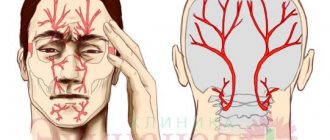Your mind and heart feel like they are split.
You want to do something, but another part of you screams: “there is no way!”
You believe in something, but you cannot justify the actions that faith teaches.
You feel that it is right, but at the same time you also feel that it is wrong.
How can you understand all this confusion, all this inner conflict? You feel your brain melting and you begin to despair.
If you feel like you're inching closer to insanity, or the confusion is becoming too much to handle, stop right now. Pause. Close your eyes and take a deep breath. For the next minute, focus on your breathing: inhaling and exhaling.
In this article, I hope to help you understand the roots of your inner conflicts and how to find peace of mind.
Internal conflict is the presence of opposing psychological beliefs, desires, impulses or feelings. In the field of psychology, internal conflict is often referred to as “cognitive dissonance,” which refers to having conflicting and incompatible thoughts, beliefs, and attitudes. This psychological struggle can occur at any time in life in any area of life, relationships, commitments, work, religious beliefs, moral views and social ideologies.
An example of internal conflict: a person who believes in women's rights, but does not allow them to make decisions. In the religious world, internal conflict often arises when a person is confronted with a doctrine or teaching that he is not comfortable preaching.
The worst battle is the battle between what we know and what we feel.
When we face any internal conflict, it is due to a disagreement between our heart and head.
As research conducted at the HeartMath Institute shows, our hearts carry their own special kind of intuitive intelligence. When we are brought up in a mind-dominated society, we become very confused and confused when our hearts are involved in everyday affairs. It is very easy to listen to the mind, mindlessly obey what others teach us, and plan our lives logically. But our hearts carry their own special kind of intelligence, which is non-linear, sophisticated and often very abstract. There is no formula or set of rules that is tied to the intelligence of the heart: we must tune in to the voice within that often confuses us so much.
Our intellect is what gives our lives structure, direction and practical application. But the intelligence of the heart is what breathes life and truth into the framework of our journey. By not listening to our hearts, we live soulless, unsatisfied and untrustworthy lives. But without listening to our heads, we live in absolute chaos.
As we can see, balance is needed. We need to listen to both our hearts and our heads, but we often tend to put one above the other, which is the reason why we experience inner conflict.
So why does internal conflict occur? This happens because we do not have balance and balance between the heart and the head. Our heart says one thing, but our mind says another: and both scream with the same intensity. When our actions do not align with our values, the inevitable result is feelings of discomfort and even shame. So what should we listen to, when, and why? We will look at the answer to this question, but first we need to understand what creates internal conflict.
We face internal conflict for a number of reasons. There is often no single cause or origin, but a number of factors which include:
- Beliefs and rules that we inherit from our parents.
- Religious beliefs, dogmas, or creeds in which we believe.
- Social values and ideals that we have accepted.
Simply put, the more beliefs, ideals, expectations and desires we have, the more likely we are to suffer from internal conflict.
There are many different types of internal conflicts, and I tried to cover as many as possible. Pay special attention to the ones below.
Religious conflict
Religious conflict is quite common as it revolves around reason-oriented beliefs and beliefs, which makes them especially fragile. Examples of religious conflict include believing in a loving God, but it is difficult to accept that this “loving” being sends people to hell for eternity. Or a person who is religiously faithful uses various drugs. When scientific facts arise, religious conflict may arise in a person who values both truth and his religious beliefs.
The role of consciousness in subconscious contradictions
The role of consciousness in such subconscious contradictions is small. Consciousness cannot resolve this contradiction in any way and is only forced to choose one option out of two , which to follow, which always brings suffering - either the desire is not realized, or the fear of consequences is realized. Both the first and second are suffering.
Therefore, the consciousness struggles with the uncertainty of which option to choose, and also constantly tries to combine them. In the example described above with the boss, a person, in order to both realize his desire and avoid the consequences of its implementation, can begin to secretly harm his boss, for example, by starting to spread gossip or discreetly spit in his coffee.
In all cases, the internal subconscious contradiction at the level of consciousness is insoluble. A person, finding himself in such a situation, will try to justify one side and will try to follow it. At the same time, he will be constantly torn by doubts as to whether he chose the right option . But even after committing one or another action, choosing one side or another in his subconscious, doubts will not leave him, and even when the situation is far behind in time, doubts and internal uncertainty will continue to live in a person for the rest of the time . Because no matter how much time has passed, the subconscious contradiction has not been eliminated and continues to have a destructive influence on a person’s personality.
Self-esteem conflict
Your image is your internal idea of yourself, for example, “My name is Ivan. I am a patient, loving and compassionate person. I'm a disorganized artist who supports animal rights, etc." Internal conflict occurs when we are confronted with evidence that contradicts our beliefs about ourselves. For example, a person who believes he is honest may lie on his resume to get his dream job. Someone who is for a healthy diet cannot give up smoking. A person who identifies as an empath may experience constant resentment towards another person.
Changing an old solution
Cross out negative words and replace them with positive ones. The effect will be stronger if we find “turning points” on our map (the first negative words in a horizontal chain), replace them with positive ones and derive new unifying associations up to replacing the final word. The brighter the positive images are, the more pleasant they are for us (including physically - goosebumps, tingling, a feeling of freedom in the shoulders, etc.), the stronger the “overwriting” effect will be.
The effect will be even more powerful if, before you start changing associations, you enter a resource state (for example, through meditation).
Look at the positive associations and ask yourself if they are limiting you? What do I mean: for example, you worked with the request “money” and received the word “achievements” in the final and the feeling that yes, receiving money for you is recognition of achievements, and achievements bring income... But how else can you get money ? Are you missing out on cash gifts, finds, winnings and other ways? For example, in this case, you can give yourself permission to allow you to earn income in a variety of ways.
Record positive associations
Create a bright collage or drawing on the theme of the positive associations you found - this is guaranteed to add insights to the topic of your request.
Save the sheet with associations, putting a date on it, and do “16 associations” again with the same query word three months later - this way you can track what has changed.
Interpersonal conflict
Interpersonal conflict overlaps with other types of intrapersonal conflicts such as self-esteem and love. This type of conflict occurs in social situations when you want to act one way but act differently. For example, Anton hates talking about sports, but he pretends to be interested in what his colleagues are saying. An introvert does not have much energy, but puts up a façade of "high energy" to fit in with others. Or someone is offended by a friend, but doesn’t say anything, even if they really want to say it.
Existential conflict
Existential conflict involves a feeling of discomfort and confusion in life, especially when two opposing beliefs or desires arise. For example, to hate life, but at the same time love it. Or the desire to live life to the fullest, but not wanting to make any changes or get out of your comfort zone. Existential conflict can also be directed toward the world, such as wanting to save the planet while at the same time believing it is doomed or polluting it.
Please note that all of these examples of intrapersonal conflict often overlap with each other. This list is also not definitive, so feel free to leave a comment if you think there are any types of internal conflict that are missing.
All the struggle happens inside. And what causes internal conflict? Attachment to beliefs, desires and expectations.
It's very simple, all our suffering arises when we believe our thoughts, instead of seeing them for what they really are: transmission of energy fluctuations in the brain. Do we control our thoughts? No. Otherwise, we would always choose to think happy and harmonious thoughts. We don't even know what our next thought will be, let alone the next ten, because they all arise and disappear spontaneously. If we don't control these thoughts, then how can they mean anything about us unless we give them meaning ourselves?
Sit down and try to follow how your thoughts come. Do you control them? Or are they controlling you?
Additionally, here are some other tips that I hope can help you find more peace and clarity:
Awareness of the old decision
When working independently, you can find the old solution using the method described below of “16 associations” by C. G. Jung to the desired concept or situation, which helps to bypass the psychological defenses that protect our consciousness from unpleasant and painful moments associated with the old decision.
You will need a sheet of paper with a special table, a pen and about half an hour of free time in silence. Called like this:
Create a request
To make the result deeper, straighten your back, take a couple of deep breaths and exhales and move your attention inward, to your lower abdomen.
Describe in a word or phrase a problem that worries you, or a problem whose solution will improve the quality of your life in the near future. Formulate it in one word or short phrase. For example, you just can’t sit down to write a thesis - then take the word “diploma”. Your current job has started to cause negativity—take the word “work.” You cannot find a life partner for mutual love and starting a family - take the word “marriage”.
Write down the word or phrase that you used to describe your difficulty/task at the top of the sheet.
First stage
Inhale and exhale and look at the written word. Think about this concept: as something that is relevant to you personally, and as an abstract concept.
Now write down in the first column 16 associations for this word that come to your mind. Let yourself go, write down all the words. Don’t throw away a word, even if it seems inappropriate to you - since it came to your mind, it means it’s your association. Listen to yourself—and your body. Does the word or phrase you found resonate with you? Is this exactly it - or can it be formulated more precisely? Use nouns, verbs, adverbs or short phrases.
There are two rules in the upcoming work: the first is honesty: the more honest, the more sincere you are with yourself, the more powerful the effect you will get as a result, the second rule is that words should not be repeated: if a word appears during the exercise two or more times, write it down separately at the bottom of the page. Then I'll tell you what to do with it.
Second phase
After the first column of 16 associations is filled in, start working with the second column: in each line you need to write down a word or phrase that for you personally combines two words from the first column.
You need to work with each pair separately, without reference to the main word (the one that represents your request). Remember about inner honesty? Look for that common association that will be exactly yours. Listen to the sensations in your body, straighten your back, relax your shoulders, turn your attention to your lower abdomen: feel what sensations in your body are caused by the first word of the pair? And now - what sensations does the second word evoke? What do these sensations have in common? What are they associated with? Describe it in one word or short phrase.
When you have found a unifying association for a pair of words, listen to yourself and your sensations in your body: is this the same word? Or is there something more precise - just for you?
Third stage
In the second column you have eight words. Start working with the third column and repeat the same as in the second step. Remember that words should not be repeated (if a word is repeated, write it down below and look for another association). Look for your exact words.
When you have four words in the third column, repeat the same with the fourth column. Pay attention to the sensations and emotions that arise in your body. Record them as an outside observer and continue working.
Now combine the resulting two words into one. This last word is your deepest association associated with the old decision.
Fourth stage
Look at the final word and ask yourself: am I comfortable with such a deep association or not? If I associate marriage with depression, how does that affect me and my actions?
The final word can also be positive - and then it can become a resource: that association and that image that gives you strength and desire to act.
Looking at the results of the technique, you can realize what influences your perception and subconscious attitude towards the situation. In most cases, if you feel the resulting word, you will remember your old decision. If this does not happen, then repeat the technique again, using the resulting deep association as a query word.
Decline the choice.
Do you need an answer right now? Sometimes letting life go in the direction it wants is a better option than taking a violent path. Wayne Dyer: "The conflict cannot survive without your complicity."
I hope these tips help you find more peace of mind. Remember that it is completely normal to experience intrapersonal conflict and there is nothing strange about you. Also, when it comes to internal conflicts, people tend to romanticize the heart and believe that we should only listen to what the heart wants. But this is an unbalanced approach: you need to listen to both the heart and the brain to create inner harmony.
If you want to make an appointment for a consultation, you can use the phone number or fill out the feedback form; to do this, go to the contact information page and choose a method that is convenient for you. Thank you!










